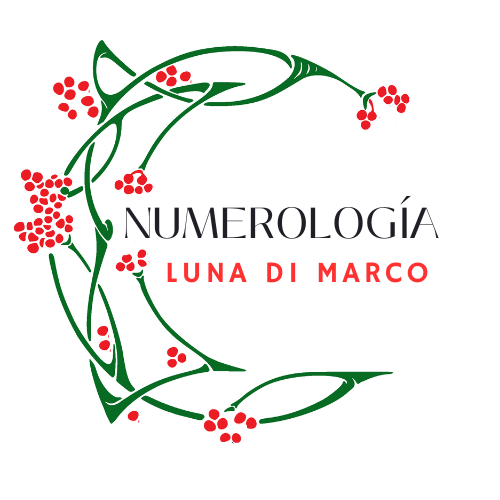History of Numerology
Numerology is an ancient and fascinating system that has intrigued humanity throughout the centuries. Through the study of numbers and their symbolic meanings, numerology has been used to unveil the secrets of personality, destiny, and life purpose. In this article, we will embark on a journey through the history of numerology, exploring its origins, cultural influences, and development over time.
I. Early Signs of Numerology
The origins of numerology can be traced back to ancient civilizations that recognized the importance of numbers in everyday life and cosmic events. Early evidence was found in cultures such as the Egyptian, Babylonian, Chinese, and Indian, where numbers were considered sacred and were attributed specific meanings.
In ancient Babylon, for example, numerological tables were used to predict the fate of individuals and the interpretation of dreams. The ancient Egyptians, on the other hand, associated certain numbers with deities and believed that numbers possessed divine qualities.
II. The Influence of Pythagoras
One of the most significant milestones in the history of numerology was the influence of the Greek mathematician Pythagoras in the 6th century BCE. Pythagoras believed that numbers were the key to understanding reality and that everything in the universe could be expressed in numerical terms.
Pythagoras’s numerological system was based on the idea that numbers from 1 to 9 had specific meanings and energetic vibrations. These numbers were used to interpret personality, destiny, and relationships between individuals.
III. Development and Diversification of Numerology
Over the centuries, numerology continued to develop and adapt to different cultures and traditions. Each culture brought its own interpretation and methods of numerical calculation.
In ancient China, for example, the system of Lucky Numbers was used, which assigned specific meanings to numbers based on the I Ching book. In India, the system of Vedic Numerology was developed, which integrated the principles of astrology and numerology to gain a deeper understanding of personality and destiny.
IV. Numerology in the Modern Era
As the world entered the modern era, numerology experienced a resurgence and became more accessible to the masses. Through books, seminars, and private consultations, numerology became popularized and became a tool used by people seeking self-awareness and guidance.
In the 1900s, American author and numerologist Juno Jordan played a key role in popularizing numerology in the United States. Her practical and accessible approach made numerology more understandable and applicable to the general public.
Juno Jordan, recognized as the “mother of modern numerology,” developed a practical and systematic approach that helped democratize the study of numerology. In her book “The Romance in Your Name,” published in 1965, Jordan introduced a simplified method of numerological analysis based on the interpretation of numbers associated with the letters of a person’s full name.
Her approach focused on analyzing personality, expression, and destiny numbers, which were linked to specific letters in the full name. This methodology allowed people to better understand their personality and life purpose through a more accessible and easy-to-follow analysis.
Juno Jordan’s influence extended beyond her own work. Her teachings and approach inspired other numerologists to explore and develop their own methods and approaches. As a result, various schools and systems of numerology emerged, each with its unique approach and focus on specific aspects of numerical interpretation.
Another significant milestone in the popularization of numerology was the growth of the media. As the media, such as television and radio, became more prominent, numerology found a space in entertainment programs and newspaper horoscopes. This allowed numerology to reach a wider audience and become a common topic of conversation.
Additionally, with the advent of the Internet and social media, information about numerology has become even more accessible. Professional and amateur numerologists share their knowledge and offer services online, allowing people to explore and learn about numerology from the comfort of their homes.
Numerology has also found its place in fields such as psychology and personal development. Many professionals use numerological principles as complementary tools to help their clients better understand themselves, discover their strengths, and overcome challenges.
Despite its growing popularity, numerology has also faced criticism and skepticism. Some argue that it lacks a solid scientific basis and that its interpretation is subjective. However, many proponents of numerology argue that its power lies in its ability to provide additional perspectives and generate personal reflections, regardless of its scientific validity.
In conclusion, numerology has experienced a resurgence in the modern era, thanks to the efforts of pioneers like Juno Jordan and the accessibility provided by the media and technology. As more people seek to understand themselves and find guidance in their lives, numerology has become a valuable tool that offers unique insights and can aid in the journey of self-discovery and personal growth.
V. References and Sources
Skinner, Stephen. “The Complete Idiot’s Guide to Numerology.” Alpha, 1999.
Jordan, Juno. “The Romance in Your Name.” Los Angeles: DeVorss & Company, 1965.
Arroyo, Stephen. “Exploring Jupiter: The Astrological Key to Progress, Prosperity & Potential.” York Beach: Samuel Weiser, Inc., 2005.
Bunker, Dusty. “Numerology and the Divine Triangle.” St. Paul: Llewellyn Publications, 1979.
Decoz, Hans. “Numerology: Key to Your Inner Self.” Charlottesville: Atria Books, 2016.
Drayer, Ruth A. “Numerology, The Power in Numbers: A Right & Left Brain Approach.” Clearwater: Plaza Publishing, 2003.
Parker, Derek, and Julia Parker. “The New Compleat Astrologer.” London: Mitchell Beazley Publishers, 2006.
Pickover, Clifford A. “The Math Book: From Pythagoras to the 57th Dimension, 250 Milestones in the History of Mathematics.” New York: Sterling, 2009.
Ruskamp, Harish Johari. “Numerology: With Tantra, Ayurveda, and Astrology.” Rochester: Destiny Books, 1990.
Stavish, Mark. “The Path of Alchemy: Energetic Healing & the World of Natural Magic.” Woodbury: Llewellyn Publications, 2006.
Webster, Richard. “Numbers, Their Occult Power and Mystic Virtues.” London: Theosophical Publishing Society, 1890.


